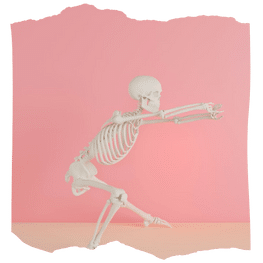“I Just Don’t Feel Like Myself Anymore”
It’s one of the most common things women say as they move through their 40s. Energy dips, moods shift, sleep becomes unpredictable, and even small things—like remembering names or handling stress—start to feel harder. For many, it’s frustrating and confusing. You’re doing everything “right,” but something still feels off.
That “something” is often hormones.
Your hormones are powerful chemical messengers that influence nearly every system in the body—sleep, metabolism, cognition, bone strength, muscle mass, cardiovascular health, libido, and more. When they begin to fluctuate, especially in the decade leading up to menopause, the changes can be subtle at first… and then deeply disruptive.
But here’s the good news: hormonal shifts aren’t the end of the story—they’re a signal to pay attention. With the right support, women can navigate these changes with clarity, resilience, and even renewed strength. In fact, understanding your hormones may be one of the most important things you can do to extend your healthspan and feel like yourself again—only stronger.
The First Signs: Perimenopause in Your 40s

Most women are surprised to learn that perimenopause can begin as early as your late 30s—but for many, it starts in the early to mid-40s. This is the transitional period leading up to menopause, and it’s often when hormones begin their slow, uneven shift. Periods may still come regularly (at first), which makes the symptoms even easier to dismiss or misdiagnose.
Common signs of perimenopause include:
Irregular or heavier-than-usual cycles
Difficulty sleeping or staying asleep
Increased anxiety or mood swings
Brain fog or trouble focusing
Weight gain, especially around the midsection
Fatigue that doesn’t improve with rest
Decreased libido
More pronounced PMS symptoms
These changes can be subtle, erratic, and easy to chalk up to stress, aging, or “just life.” But often, they’re your body’s early signals that estrogen, progesterone, and even testosterone are beginning to fluctuate—and that deeper support is needed.
What makes this stage especially frustrating is how undervalued and underdiagnosed it tends to be. Many women are told their labs are “normal,” or that they’re too young for menopause, leaving them without answers. But normal ranges don’t always reflect optimal hormone balance—especially for women in transition.

Lifestyle plays a huge role here too. After 40, the body becomes more sensitive to things like sleep disruption, under-eating, over-training, and stress. What worked in your 30s may now backfire, and pushing harder can actually make symptoms worse.
Perimenopause isn’t a failure of the body—it’s a call to shift gears. With the right guidance and support, these years can be a time of renewal and powerful transformation.
Menopause and Beyond: What Changes at 50 and After
If perimenopause is the slow transition, menopause is the milestone: the point at which a woman has gone 12 consecutive months without a menstrual period. On average, this occurs around age 51—but the physical and hormonal shifts don’t stop there. In many ways, this is when the deeper changes begin.
At menopause, levels of estrogen and progesterone drop significantly, and the body adjusts to a new baseline. For some women, symptoms like hot flashes, insomnia, or mood swings fade. For others, they persist—or shift into new challenges like joint pain, vaginal dryness, or more noticeable weight gain.

But the most important changes are often invisible—and long-term:
Bone density begins to decline more rapidly
Muscle mass shrinks unless actively preserved through training
Cardiovascular risk increases due to reduced estrogen
Cognitive clarity can dip, affecting memory and mental sharpness
Skin, collagen, and connective tissue lose elasticity and resilience
For many women, these physical shifts come as a surprise—not because they weren’t warned, but because the advice has traditionally been vague or unhelpful. “It’s just aging,” they’re told. Or worse, “You’ll get used to it.”
But this phase of life isn’t a decline—it’s an opportunity. With a thoughtful approach to hormone health, strength training, nutrition, and rest, women can not only maintain their vitality but actually enhance it.
The key is knowing that menopause is not the end of the hormone story—it’s just a new chapter. And what you do in your 50s and beyond can profoundly affect how you feel in your 60s, 70s, and 80s.
The Hormone–Longevity Connection
Hormones don’t just affect how you feel today—they play a critical role in how well you age. From brain health to bone density, hormones are deeply tied to the systems that keep you strong, sharp, a
nd independent for decades to come.
Here’s how key hormones shape longevity:
Estrogen
Estrogen supports far more than reproductive health. It’s essential for:
Maintaining bone density (helping prevent osteoporosis and fractures)
Protecting the brain from cognitive decline
Regulating cholesterol and supporting heart health
Enhancing skin elasticity and joint health
As estrogen declines, these protective benefits begin to fade—but they don’t have to vanish entirely. Many women are now exploring bioidentical estrogen therapy as a way to safely maintain hormonal support into midlife and beyond.
Progesterone
Often the first hormone to drop in perimenopause, progesterone plays a key role in:
Sleep quality and depth
Mood stability and anxiety regulation
Supporting the nervous system
When progesterone falls, many women experience restless sleep, heightened irritability, or a general sense of unease—sometimes without realizing why.
Testosterone
Though it’s usually thought of as a male hormone, women rely on testosterone too. It contributes to:
Muscle mass and physical strength
Energy and motivation
Cognitive sharpness and focus
Sexual desire and confidence
Maintaining healthy testosterone levels can help women stay physically strong and mentally engaged, which are both markers of increased healthspan.
These hormones don’t operate in isolation. They form a dynamic, interconnected system, and when one is out of balance, the ripple effects are often felt throughout the body. Supporting hormone health isn’t about chasing youth—it’s about creating the conditions for resilience, vitality, and graceful aging.
What Can Women Do? Testing, Nutrition, and Support

Start with Testing
Standard labs often miss the nuances of hormonal shifts, especially in perimenopause. If you’re still cycling, your hormone levels can vary dramatically day to day. That’s why functional hormone testing—through saliva, urine (DUTCH test), or timed blood draws—can provide a more complete picture.
A qualified provider can help you interpret the results and identify patterns that might be behind your symptoms, even if they’re considered “within normal range.”
Support Your Body Daily
No matter where you are in the hormonal journey, these foundations matter:
Prioritize sleep: Deep, consistent sleep helps regulate cortisol and supports hormone balance
Eat enough: Undereating (especially protein and healthy fats) can disrupt hormone production
Lift weights: Strength training helps counteract the loss of muscle and bone tied to low estrogen and testosterone
Manage stress: High cortisol throws off estrogen, progesterone, and insulin regulation
Consider targeted supplements: Magnesium, omega-3s, B vitamins, and adaptogens can offer key support
Explore Your Options

For some women, lifestyle changes are enough. Others may benefit from bioidentical hormone replacement therapy (BHRT)—especially when symptoms are affecting quality of life or long-term health. This is a deeply personal decision, and one that should be guided by a practitioner who specializes in women’s hormone care—not a one-size-fits-all approach.
The takeaway? There are more options than ever before—and you’re not alone.
You Don’t Have to “Just Deal With It”
If you’ve been told that fatigue, brain fog, low libido, or stubborn weight gain are just part of getting older—don’t buy it. These symptoms aren’t just aging. They’re often signals from your body that your hormones need support.
The truth is, you don’t have to settle. With the right knowledge and care, you can navigate this chapter with clarity, confidence, and strength. Longevity isn’t just about living longer—it’s about living better.
Join the Livestream: Women’s Longevity Starts Now
Want to learn more about how hormones, fitness, and natural medicine can work together to support women over 40?
Don’t miss our special livestream event:
🗓️ Tuesday, July 30 at 7:00pm
🎙️ Featuring Linda Goos (Studio Bloom), Dr. Jamie Doughty, and Kristi Zimmer, CEO, from Tummy Temple
🎥 Streaming live on Facebook and YouTube
This one-of-a-kind conversation will explore strength training, hormonal wellness, and how to age with intention—not just acceptance.
👉 [Link to RSVP or Watch]
(This link will be updated once the video is live.)

Dr. Jamie Doughty, ND is a licensed Naturopathic Physician and Medical Director at Tummy Temple. She supports individuals and families with hormone balance, digestion, detox, and overall wellness. A graduate of the National College of Natural Medicine, she is certified in IV therapy, classical homeopathy, and natural childbirth. Dr. Jamie also leads Tummy Temple’s Virtual Clinic, offering remote naturopathic care to help clients achieve vibrant, balanced health.




